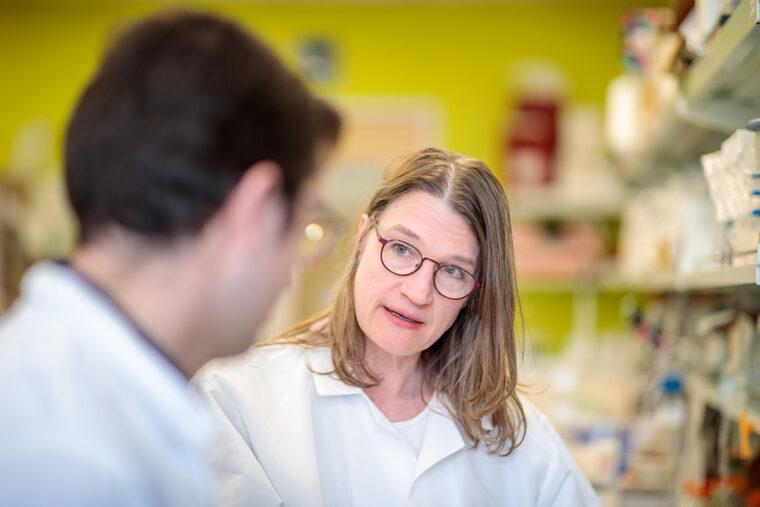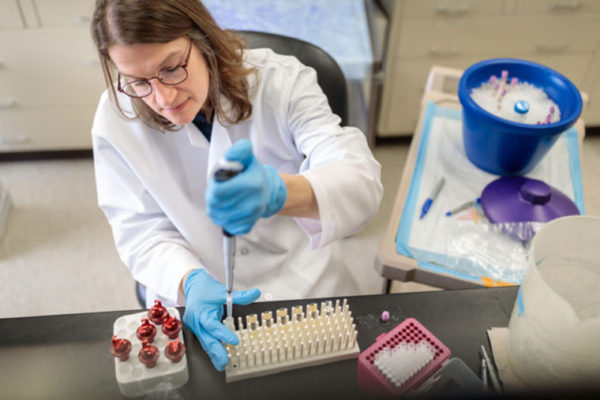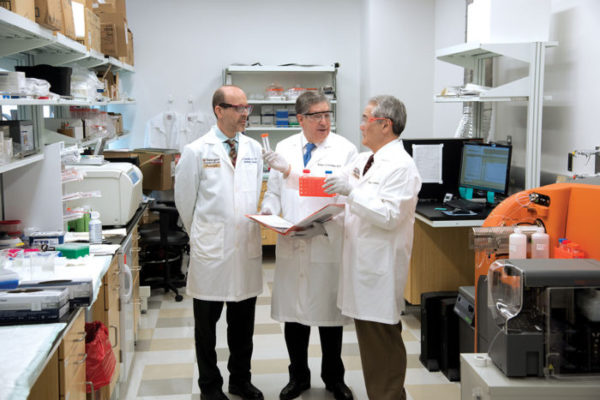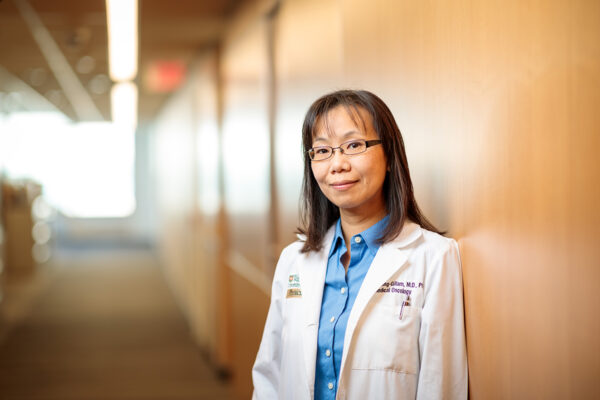A few years ago, as immunologist Gwendalyn Randolph and postdoctoral researcher Li-Hao “Paul” Huang hashed out a research plan, the two realized they had a problem. They were studying inflammatory bowel disease (IBD), and they needed human participants for a study looking at how fat travels from the intestine to the blood. But they had never done a human study that required more of participants than donating a small amount of blood. Worse, they didn’t have a local clinical collaborator since Randolph, the Emil R. Unanue Distinguished Professor of Immunology at Washington University School of Medicine in St. Louis, had just recently arrived in St. Louis from Icahn School of Medicine at Mount Sinai in New York City.
Randolph and Huang started designing a study to be conducted at Mount Sinai, where Randolph still had many collaborators. But to do so, they needed to figure out how the fats would be delivered to participants and brought back to St. Louis for analysis.
“First, we were concerned with formulating a fat-rich meal that would be palatable and could be made reproducibly by our colleagues in New York,” Huang said. “We went to Gwen’s house, and we prepared a milkshake with ice cream and whole milk and the other ingredients needed for the study – including fat molecules that could be traced in the laboratory – and we drank it.”
The taste test was successful, but luckily, it turned out to be unnecessary. Not long after, Washington University gastroenterologist Matthew Ciorba, MD, approached Randolph and suggested a collaboration. And soon, other School of Medicine faculty members — gastroenterologist Parakkal Deepak, MBBS, and nutrition experts Bettina Mittendorfer, Bruce Patterson and W. Todd Cade — signed on as well. Together, they redesigned the study to leverage Washington University’s prowess in translation medicine. Randolph was only too happy to leave milkshake formulation to the true experts.
The study is nearing completion. It represents a remarkable shift in focus for Randolph, who began her career studying how immune cells travel around the body.
“She’s just a fantastic scientist,” said Paul Allen, the Robert L. Kroc Professor of Pathology and Immunology and a collaborator of Randolph’s. “She used to work on innate immune cells, but then she blossomed out into cardiovascular disease, lipid metabolism, the gut. It’s just amazing how she finds these connections between different fields.”
Randolph has a long track record of breaking down scientific silos. An immunologist by training, she made a name for herself in cardiovascular and inflammation research by asking questions no one else had thought to ask.
Read the full profile on the School of Medicine site.



